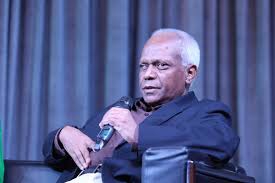
-
Bangladesh’s climate change vulnerabilities and mitigation responses
A densely populated South Asian developing country with an extended low-lying coastal belt, Bangladesh is particularly vulnerable to a rise in sea levels and other climate change threats created by the high carbon emissions of industrial economies. This is spite of it having minuscule per capita carbon emissions.
The government of Bangladesh is aiming to reduce this vulnerability by embracing low carbon climate-resilient options in development strategies and initiatives. The intended transition from conventional high carbon emission output practices and lifestyles to the low emission sustainable alternativeslargely entails rechannelling existing financing flows to new sustainable options instead of allocating vast sums to new financing.
BB has focused on catalyzing the needed shift of financing flows in the domestic market towards the adoption of sustainable low carbon practices and lifestyles. While the government is mobilizing fiscal resources for major new public climate-action initiatives, BB’s reorientation efforts in the financial sector are helping the adoption of sustainable low carbon options in the private sector, which constitutes over four-fifths of the economy.
-
Bangladesh Bank’s reorientation initiatives in the financial sector
- Sensitizing and providing motivation for socially responsible sustainable financing
BB began by launching a sustained sensitization and motivation initiative to ingrain a socially responsible institutional ethos of inclusive, environmentally responsible financing in the country’s financial sector. BB holds regular consultative engagements with banks and financial institutions in setting mutually agreed incremental targets for green and inclusive financing in specified priority productive sectors (in percent of annual total new financing). High performers earn token awards by way of recognition or commendation, a better supervisory rating score, etc.
BB’s motivation initiatives have resonated well in the entire financial sector; all public and private banks and financial institutions, both local and foreign, have embraced green and inclusive financing, devising innovative and cost-efficient service delivery modes for attaining the targets. Just as importantly, the motivation initiative has dissuaded the financial sector from financial speculation and wasteful consumption, increasing financing availability for environmentally sustainable projects.
- Enabling sustainable financing
Enabling sustainable financing goes hand in hand with BB’s motivation initiatives. Environmental Risk Management (ERM) guidelines issued by BB in 2011 have provided local lenders with assessment frameworks on which to base their sustainable financing decisions.
Reform initiatives are ongoing in the local capital and financial markets to foster fundraising through the issuance of corporate bonds, including green bonds.
BB has also encouraged forging collaborative and cooperative platforms for local green entrepreneurs and lenders, facilitating their work with climate action and financing support networks abroad.
- Policy support
Low cost refinance support lines in local currency are available from a BB window against sustainable financing for low carbon projects in 47 specified areas, including renewable energy generation, effluent treatment and energy efficient output practices. Initiated with BB’s own modest funding (within the limit of reserve money growth permissible in BB’s monetary programmes), development partners such as the Asian Development Bank, the World Bank and the Japan International Cooperation Agency have subsequently joined together to increase and expand the refinance lines supporting green financing and SME financing.
A new foreign currency refinance line of up to USD 500 million from BB’s resources is being lined up specifically to support financing for the adoption of environmentally sustainable practices in water management and other areas in the export-oriented textile and leather industries.
BB has also been adjusting the macro prudential rules (e.g. debt equity ratios) to create a more favorable bias for financing low carbon green options rather than conventional ones.
-
Outcomes and the way forward
It is too early to assess the impact of the BB’s initiatives in reducing the carbon footprint. This is because green financing in the domestic market has not yet attained the critical mass needed for concrete results. However, gains in the momentum in the financial sector towards sustainable green financing are already clearly perceptible. The highly favorable macroeconomic stability outcomes of BB’s sustainable financing initiatives are also evident. Bangladesh has enjoyed more than 6% average annual real GDP growth for well over twelve years now amid a prolonged global economic crisis. Strong gains in the external sector and a foreign exchange reserve buildup have put the domestic currency under sustained appreciation pressure.
All banks and financial institutions in the domestic market are steadily building up their portfolios of green financing assets. IDCOL, a public sector infrastructure financing company, has already amassed a green financing portfolio large enough to raise new green bond funds. Besides promoting the green transition of the domestic financial sector, BB is also affirming its commitment to the low carbon transition of global finance by acquiring and holding green bonds in its foreign exchange reserve asset portfolio. BB intends to proactively pursue rapid progress in all these areas, aiming in the near to medium term to increase low carbon financing in Bangladesh’s financial sector.

M.A.M. Kazemi is the senior adviser to the governor and former deputy governor of the Bangladesh Bank.
M.A.M. Kazemi est conseiller principal du gouverneur et ancien gouverneur adjoint, Banque centrale du Bangladesh.




